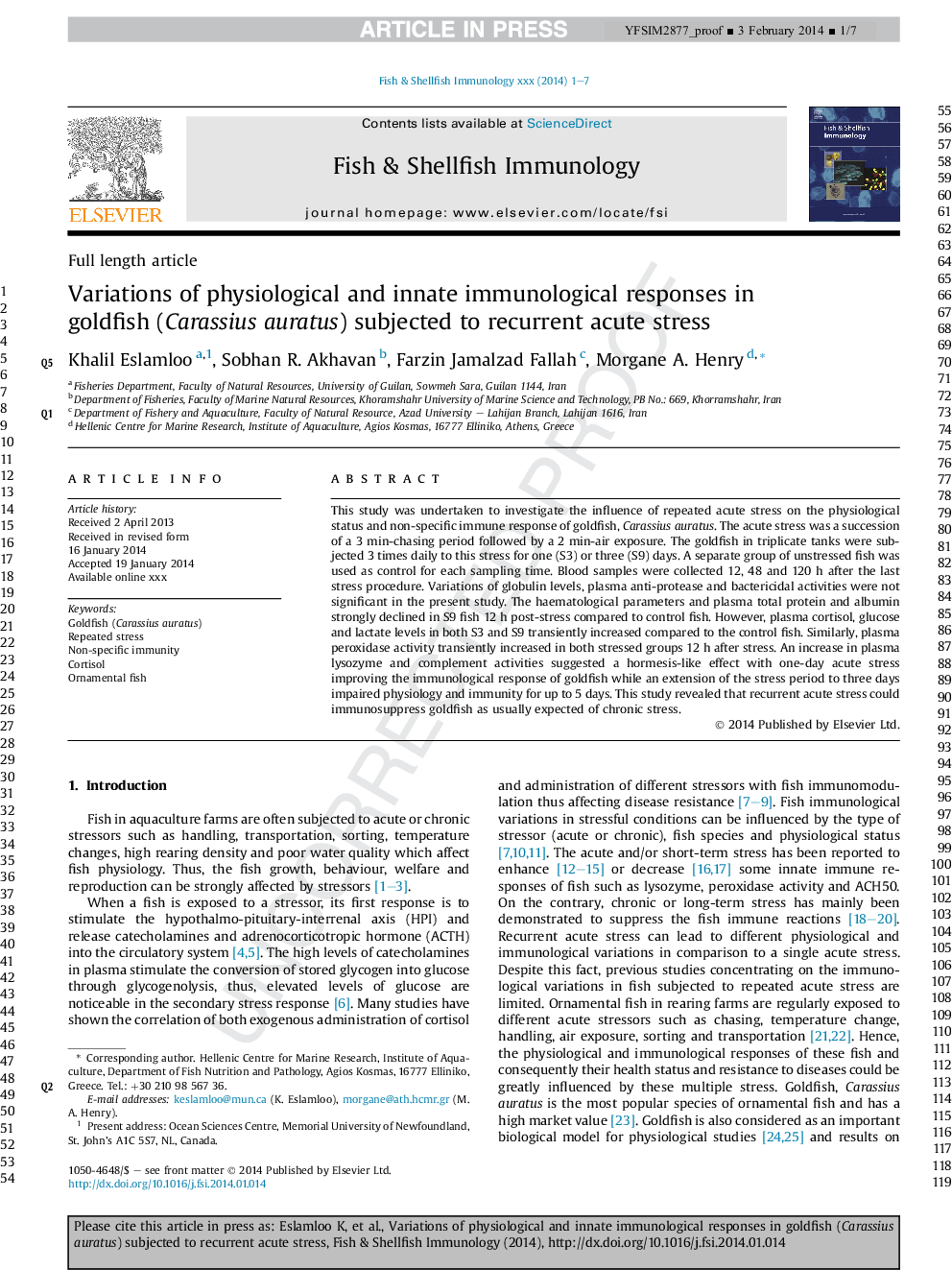| Article ID | Journal | Published Year | Pages | File Type |
|---|---|---|---|---|
| 10971973 | Fish & Shellfish Immunology | 2014 | 7 Pages |
Abstract
This study was undertaken to investigate the influence of repeated acute stress on the physiological status and non-specific immune response of goldfish, Carassius auratus. The acute stress was a succession of a 3Â min-chasing period followed by a 2Â min-air exposure. The goldfish in triplicate tanks were subjected 3 times daily to this stress for one (S3) or three (S9) days. A separate group of unstressed fish was used as control for each sampling time. Blood samples were collected 12, 48 and 120Â h after the last stress procedure. Variations of globulin levels, plasma anti-protease and bactericidal activities were not significant in the present study. The haematological parameters and plasma total protein and albumin strongly declined in S9 fish 12Â h post-stress compared to control fish. However, plasma cortisol, glucose and lactate levels in both S3 and S9 transiently increased compared to the control fish. Similarly, plasma peroxidase activity transiently increased in both stressed groups 12Â h after stress. An increase in plasma lysozyme and complement activities suggested a hormesis-like effect with one-day acute stress improving the immunological response of goldfish while an extension of the stress period to three days impaired physiology and immunity for up to 5 days. This study revealed that recurrent acute stress could immunosuppress goldfish as usually expected of chronic stress.
Related Topics
Life Sciences
Agricultural and Biological Sciences
Aquatic Science
Authors
Khalil Eslamloo, Sobhan R. Akhavan, Farzin Jamalzad Fallah, Morgane A. Henry,
